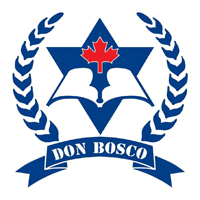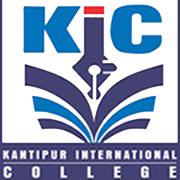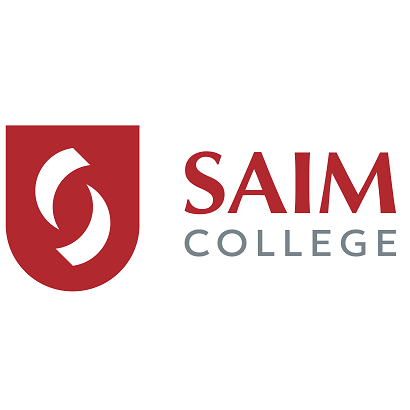Overview
MBA (Master in Business Administration) Course Overview
The MBA program offered by the Asian College of Management & Technology (ACMT) in affiliation with Purbanchal University is a two-year degree that provides students with comprehensive industry exposure and thematic academic knowledge. This program aims to equip students with relevant hands-on knowledge and skills in modern management practices. The MBA degree awarded by Purbanchal University is globally recognized and equivalent to similar master's level degrees worldwide.
Thematic Approach to Learning
The MBA students at ACMT work in teams under the guidance of faculty mentors, engaging in different thematic areas of modern-day management practices. The program is divided into four semesters, and elective and specialization subjects are evenly distributed throughout the duration. The curriculum covers a range of subjects, including the principles and contemporary practices of management, e-commerce and digital marketing, organization design and change management, project management, and specializations in marketing, finance, and human resource management.
Integration of Hard and Soft Skills
To prepare students to become effective managers in a globally competitive environment, the program integrates various hard and soft skills training workshops, guest sessions, and exposure visits to domestic and international corporations and factories. This approach ensures that students develop a well-rounded skill set and are ready to tackle the challenges of the business world.
Preamble to MBA: Basecamp Rendezvous
To provide a strong foundation for students entering the MBA program, ACMT offers an engaging 5-day workshop called "Basecamp Rendezvous." This workshop is designed to help students learn how to cope with current management challenges and provide them with toolkits and skills to navigate their professional journeys effectively.
Eligibility and Admission Process
The MBA program is open to students who hold an undergraduate degree in any discipline, meeting the minimum marks/grade requirements set by the university. Candidates with work experience may have an advantage during the interview process. Eligible students can submit their admission request online through the ACMT website or by completing a paper-based form at the admission office. The selection process involves an overall evaluation, including tests, interviews, and group discussions.
Curricular Structure
The Master in Business Administration program consists of 69 credit hours spread across four semesters. Here is an overview of the courses offered in each semester:
First Semester:
- Marketing for Managers
- Communication for Managers
- Economics for Managers
- Financial Management
- Operations Management
- Seminar I
Second Semester:
- Accounting for Managers - II
- Human Resource Management & Organizational Behavior
- Economics for Managers
- Financial Management
- Operations Management
- Seminar I
- Elective-2
Third Semester:
- Entrepreneurship and Social Enterprises
- Research Methodology and Thesis Proposal
- Information Technology Management
- Elective-3
- Seminar II
- Specialization I
- Specialization II
Fourth Semester:
- International Business
- Strategic Management
- Corporate Governance and Corporate Social Responsibility
- Seminar III
- Specialization III
- Specialization IV
- Thesis
Specialization Areas (Any One):
- Marketing
- Finance
- Human Resource Management
- Operations and Supply Chain Management
Elective Courses: Students can choose elective courses from a range of options, including Principles and Contemporary Practices of Management, Introduction to Computing, E-commerce and Digital Marketing, Introduction to Public Relations, Organization Design and Change, and Project Management.
In-Class Programs: In addition to the core curriculum, ACMT offers various in-class programs to enhance students' knowledge and skills, such as building e-commerce platforms, data analytics through advanced Excel, wealth management certification, social media marketing, and HR analytics.
The MBA program at ACMT prepares students to become skilled and knowledgeable professionals capable of excelling in various roles within the business and management field. By focusing on practical applications and industry exposure, students gain a deep understanding of the complexities of modern business environments.
Upon completion of the MBA program, graduates possess the necessary skills to tackle real-world challenges and make informed decisions. The comprehensive curriculum equips students with knowledge in areas such as marketing, finance, human resource management, operations and supply chain management, and more. This diverse skill set enables graduates to pursue careers in a wide range of industries and sectors.
The program's emphasis on hard and soft skills development ensures that students are not only equipped with theoretical knowledge but also with the practical abilities needed to succeed in the workplace. Through workshops, guest sessions, and exposure visits, students enhance their communication, leadership, problem-solving, and critical thinking skills. These competencies are highly valued by employers in today's competitive job market.
Furthermore, the MBA program at ACMT fosters an international perspective, preparing students to thrive in a global business landscape. With a strong focus on international business and exposure to global practices, students gain a broader understanding of cross-cultural dynamics, emerging markets, and global trends. This global mindset positions graduates to take on leadership roles in multinational corporations, international organizations, or pursue entrepreneurial ventures with a global reach.
The collaboration between ACMT and Purbanchal University ensures that the MBA program adheres to high academic standards and industry relevance. The degree awarded by Purbanchal University holds international recognition, enhancing graduates' credibility and employability both within Nepal and abroad.
Throughout their MBA journey, students benefit from the guidance and mentorship of experienced faculty members who bring a wealth of industry knowledge and expertise to the classroom. The faculty's dedication to fostering a collaborative learning environment encourages students to actively participate in discussions, engage in practical projects, and apply theoretical concepts to real-world scenarios.



















